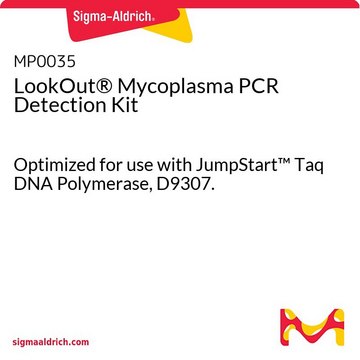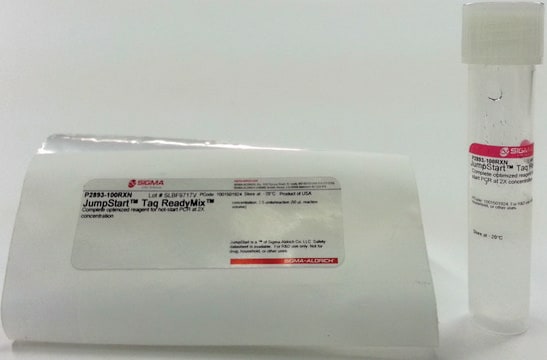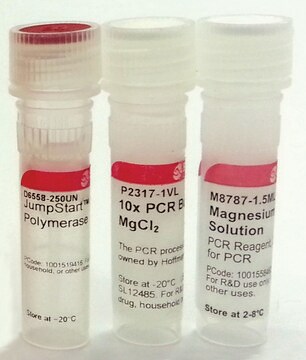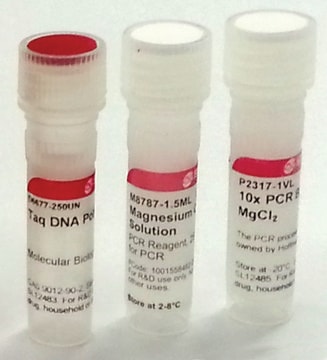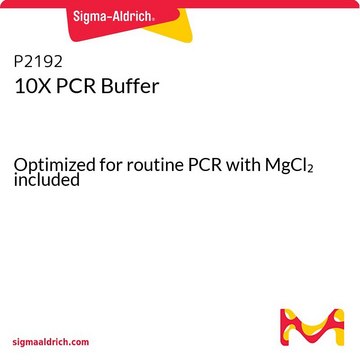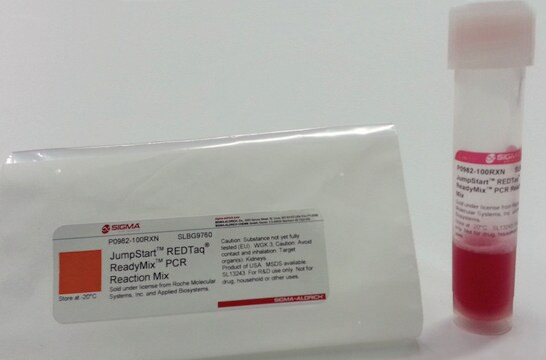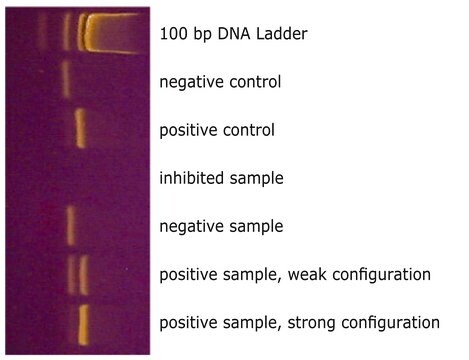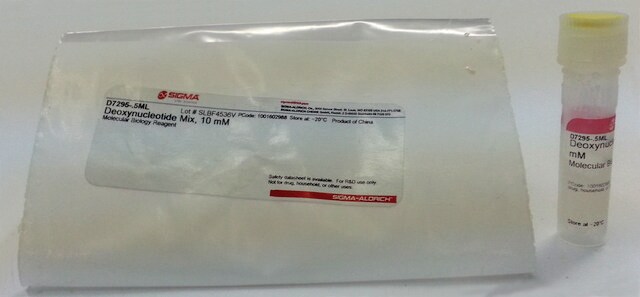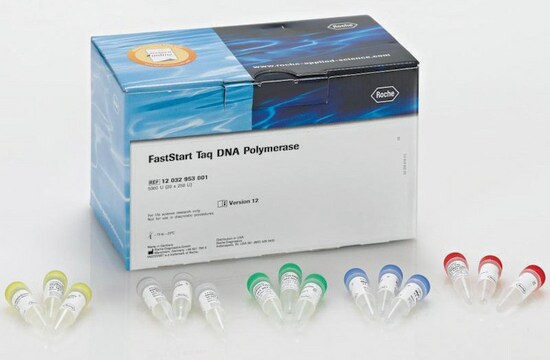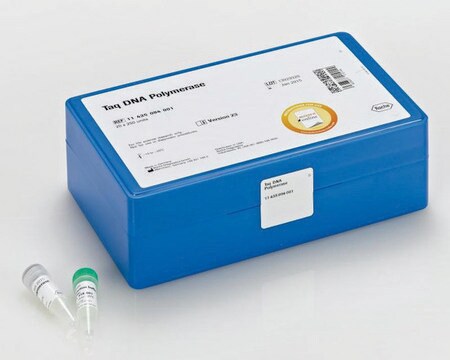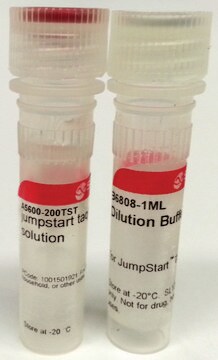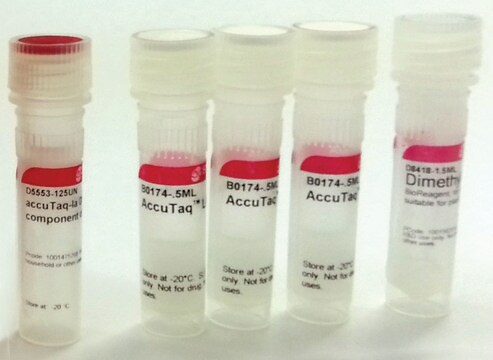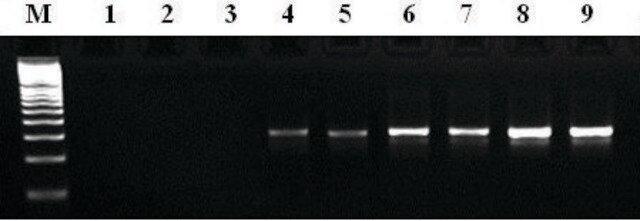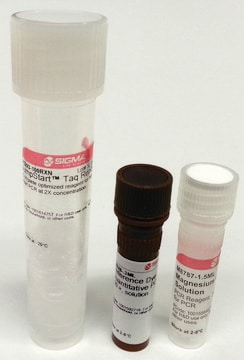D9307
JumpStart™ Taq DNA Polymerase
with MgCl2
Synonym(s):
hot start DNA polymerase, hot start PCR
About This Item
Recommended Products
form
liquid
usage
sufficient for 1500 reactions
sufficient for 250 reactions
sufficient for 50 reactions
feature
dNTPs included: no
hotstart
concentration
2.5 units/μL
technique(s)
PCR: suitable
color
colorless
input
purified DNA
suitability
suitable for PCR
application(s)
agriculture
shipped in
wet ice
storage temp.
−20°C
Looking for similar products? Visit Product Comparison Guide
Related Categories
General description
Application
- For PCR amplifications that require reduced non-specific amplification
- For multiplex PCR
- For reduction of primer dimers
- in the amplification of DNA libraries of varying sizes
- in a methylation-specific, quantitative real-time polymerase chain reaction (MS-qPCR) to determine the BRCA1 promoter methylation status
- in the generation of plasmid by amplifying the full-length of HIF1β via PCR
Features and Benefits
- Reduces non-specific amplification
- Increases PCR specificity and yield
- Reduces set-up time concerns associated with manual or wax Hot Start methods
- Activation time of less than 1 minute
Packaging
Other Notes
Unit Definition
Legal Information
Antibody licensed for in vitro research use under U.S. Patent No. 5,338,671 and 5,587,287, and corresponding patents in other countries.
related product
Storage Class Code
10 - Combustible liquids
Flash Point(F)
Not applicable
Flash Point(C)
Not applicable
Choose from one of the most recent versions:
Already Own This Product?
Find documentation for the products that you have recently purchased in the Document Library.
Customers Also Viewed
Articles
Learn about the history of the polymerase chain reaction (PCR), from the basic principles that proceeded its discovery to the awarding of a Nobel Prize for Chemistry and more recent developments such as real-time PCR (qPCR) and digital PCR.
Protocols
This protocol provides a simple and convenient method to isolate, amplify and purify genomic DNA from saliva
Blood cards provide the convenience of archiving small volumes of blood. However, many times genomic DNA from these samples is limited, This protocol provides a simple and convenient method to extract genomic DNA from a blood card. Once the DNA has been extracted, it can then be amplified using the amplification protocol
Whole blood is a common source of material used to perform genetic analysis. Many times genomic DNA isolated from whole blood samples is of low yield. This protocol is a simple method to isolate DNA from fresh or aged whole blood products. Once the DNA is isolated, it can be amplified using the GenomePlex® Whole Genome Amplification protocol.
Mycoplasma contamination of cell cultures is a serious issue impacting cell model validity. PCR testing for mycoplasma is an inexpensive, sensitive, and specific method for detecting contamination.
Related Content
GenomePlex® Whole Genome Amplification is the method of extracting DNA from the animal sample. GenomePlex® products have been used to amplify genomic DNA from chicken, porcine, bovine, fish, and shrimp source.
Our team of scientists has experience in all areas of research including Life Science, Material Science, Chemical Synthesis, Chromatography, Analytical and many others.
Contact Technical Service